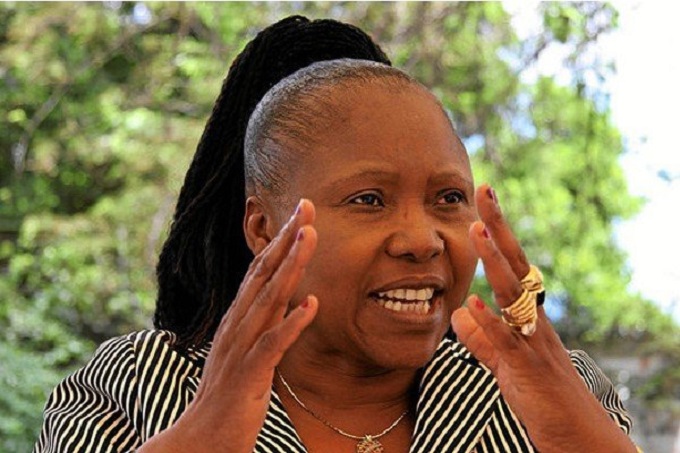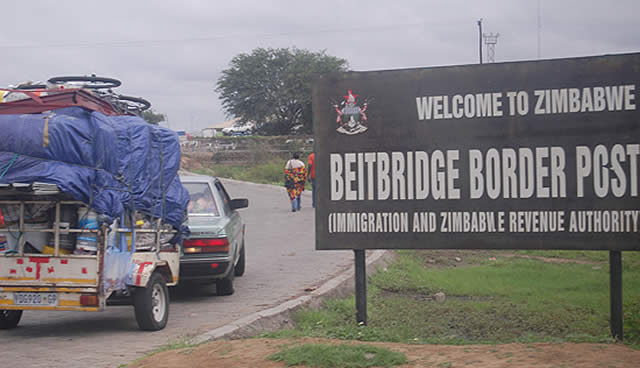Letters to the editor: Elephants, a treasure trove for Zimbabwe

Trevor Shiri, Correspondent
President Emmerson Mnangagwa attended the Elephant Summit of Kavango – Zambezi Transfrontier Conservation Area (KAZA TFCA) nations, namely Zimbabwe, Botswana, Namibia, Zambia and Angola in Kasane, Botswana.
The summit which was held under the theme, “Towards a Common Vision for the Management of Southern Africa’s Elephants,” and attended by Presidents Edgar Lungu, Hage Geingob and Mokgweetsi Masisi, emphasised on the need for the respective countries and communities to benefit from elephant and ivory trade. It must be noted that ivory trade is banned by the Convention on International Trade in Endangered Species of Fauna and Flora (CITES).
Social media and the private media has gone into overdrive to criticise President Mnangagwa’s attendance at this auspicious summit, which reinforces the need for a united approach to campaign for the lifting of the CITES ban on trade in ivory. In their jaundiced views, the President has allegedly wasted taxpayers’ money by attending a “useless” summit. In their myopic and ill-informed view, elephants are not important, and the President ought to have passed up this summit.
Ladies and gentlemen, such naivety and ignorance cannot, and should never be left unchallenged. Such misplaced criticism and downplaying the importance of this crucial summit is the very reason why people should not be allowed to wantonly criticise the President.
Zimbabwe’s elephant population
The latest census estimates place Hwange National Park’s elephant population at 53 949, which is above the ecological carrying capacity of 40 000 elephants. This means that the Park alone is overpopulated by about 13 949 elephants. The ecological damage and degradation in the Park is huge. Further, the elephants end up straying into surrounding areas such as Tsholotsho and Jambezi, spawning serious wildlife-human conflict with villagers.
The elephants stray into villagers’ fields decimating their crops – their source of livelihood. Matabeleland North is an arid region, where there is erratic rainfall patterns. Worse, the elephants even trample on villagers, leading to loss of life and limb.
It is estimated that Zimbabwe has a total elephant population of 80 000, the world’s second largest after Botswana’s 165 000.
Zimbabwe is a country under sanctions already. It is incapable of effectively financing its wildlife management initiatives as a result of lack of resources. To put matters into perspective, wildlife is capable of taking care of itself, if countries are allowed to fully benefit from their wildlife through tourism, hunting and trade without restriction.
For instance, in 2008, Zimbabwe, Botswana, Namibia and south Africa, were given reprieve to do a once-off legal sale of 100 tonnes of ivory to Asia, the proceeds of which significantly helped the four countries to carry out effective elephant management. The proceeds enabled the countries to also mitigate the human-elephant conflict, as well as ensure rural communities benefited from their wildlife resource. Zimbabwe sold 3 700kg to Japan and China on November 1, 2008, generating about US$500 000, which was duly declared to CITES.
Zimbabwe’s treasure trove
The country is currently sitting on approximately 70 tonnes of ivory that has been stock-piled from illegally hunted elephants, or those that have died due to natural causes. The cache of ivory is worth millions of dollars which could be used to boost Zimbabwe’s foreign-currency starved economy, manage the country’s wildlife and protect endangered species, as well as benefit local communities who live with the elephants.
Further, elephants constitute the much-sort-after Big 5, which are a key driver of tourism since tourists love viewing these animals. The Big 5 constitutes of the elephant, lion, rhinocerous, buffalo and the African leopard. The major game parks in Zimbabwe, the Hwange and Gonarezhou National Park are endowed with this prime wildlife, a rarity in most countries across the world in their natural habitat.
The AU-UN Wildlife Summit
Zimbabwe is set to host the AU/UN Wildlife Summit from 24 to 25 June 2019, in the resort town of Victoria Falls. The summit will provide an opportunity for attending countries to discuss ways of unlocking value from wildlife. Participants notably include African countries, who continue to suffer from the push by western countries that decimated their own wildlife, but now want to dictate how African countries, who preserved theirs, should and should not manage their wildlife.
Africa has an opportunity to collectively push for the CITES to relax its ban on ivory, in order to benefit from its wildlife, particularly elephants.
It would be recalled that the President Barack Obama administration, through the U.S. Fish and Wildlife Service banned the import of elephant trophies from Zimbabwe and Zambia because the service felt that the hunts did not contribute to the survival of the species. This ban compounded Zimbabwe’s situation as it was already reeling under the CITES ban, and now, the US had exacerbated the situation by banning imports of sport-hunted trophies into the US, a country where most hunters come from.
In its hypocritical conception, African elephants <https://www.nationalgeographic.com/animals/mammals/a/african-elephant/> are listed as threatened in its Endangered Species Act which requires that the import of any elephant or elephant parts must somehow contribute to their conservation in the wild. Here a country that has no elephants was sanctioning trade in animals that it does not have.
According to National Geographic, the US. Fish and Wildlife Service issued a memo <https://www.fws.gov/international/pdf/memo-withdrawal-of-certain-findings-ESA-listed-species-sport-hunted-trophies.pdf> on 1 March 2018, saying that it will withdraw its 2017 Endangered Species Act findings for trophies of African elephants from Zimbabwe and Zambia — which lifted the ban on importing elephant trophies from those countries — and instead, consider applications to import trophies on a “case-by-case basis.” However, after an uproar from western wildlife activists, US President, Donald Trump, through his twitter handle backtracked, tweeting that, “put big game trophy decision on hold until such time as I review all conservation facts.”
What is instructive is that decisions that affect African elephants – Zimbabwean elephants, as well as Zimbabweans, are made in the US.
It is within the foregoing context that President Mnangagwa rightfully attended the Elephant Summit in Kasane, as part of efforts to cement a co-ordinated front with fellow African countries to push for the lifting of bans and restrictions on trade in elephants and ivory — resources that are abundant on the continent. The forthcoming AU/UN Wildlife Summit and forthcoming CITES meetings require a united and co-ordinated push by affected African countries.
It is for that sole reason that President Mnangagwa, while in Kasane said that, “let us boldly speak with one voice, in the best interest of our communities. The one-size-fits-all banning of everything under CITES, disregarding the good efforts and investments by our respective governments is neither sustainable nor desirable.”










Comments